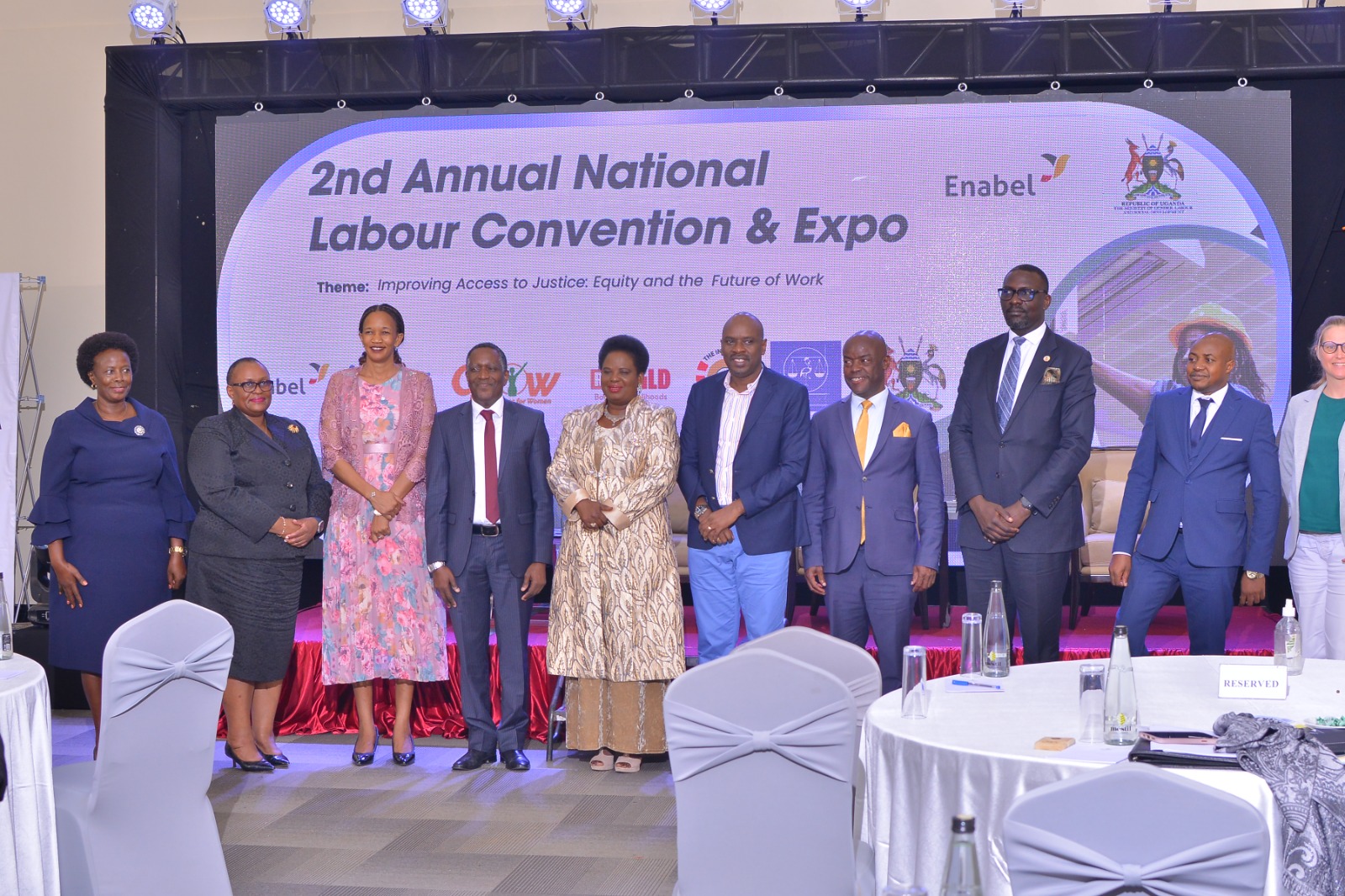Big Interview: "URA is frustrating formalisation of businesses," says Isa Ssekitto
Uganda Revenue Authority (URA) has on several times asked businesses in the informal sector to formalise so that they can be supported to grow without facing unnecessary obstacles in their day-to-day operations.
However, many businesses in the country have paid a deaf ear to the call citing a number of issues including witch-hunt among others.
Keep Reading
Speaking to The Nile Post in an interview, the spokesperson Kampala City Traders Association (KACITA) Isa Ssekitto, claimed that the tax body has done more harm than good in ensuring that businesses formalise.
Excerpts below:
*****************************************************************
How is the business community copying up with the current economic situation in the country?
It is a very big challenge to business operators because people have not yet recovered from Covid-19 interruptions and no sooner had we done so than the Russian war emerged. Three main challenges persisted, especially the interest rates that have eaten up all the capital because the banks didn’t stop accruing interest. They had to extend the period as requested by the Bank of Uganda on orders of the president. Therefore, so many people have lost their collateral.
Another issue is the rent that accumulated during Covid-19 lockdown. Many landlords didn’t give any waivers therefore businesses are struggling to cover rent for almost 1 and half years or two years.
Recently KACITA held talks with the government regarding taxes that were levied on textiles and garments, how did you resolve the issue?
Yes, we agreed but it was not a hundred percent removed. There are those that remained like taxes on T-shirts. I hear they are now adding items in the trouser sector and shirts. It is still mixed up. What we are arguing is that they go for harmonised tariff increment from 25% to 35% percent across the region because this is what they agreed in Arusha. This is what we agreed upon when we held a meeting in Nairobi in June that all East Africa countries increase the common external traffic from 25% to 35% across the divide.
What is the current trade order in the city because previously business people were complaining about the interference of street vendors?
Trade order is a big concept and it does not only talk about street vending. It also covers those that are manufacturers, distributors and retailers. It is unfair that you are the manufacturer and you are moving across the country distributing the goods. It is better to leave a chain of distribution. This is also a trade disorder.
When you talk about trade order in terms of street vending, it could be regulated. Street vending is not illegal. It only becomes illegal depending on how you arrange it. In Kampala for example it becomes illegal because people are vending from verandahs, people are vending from gates of other shops. If there were hawkers who are numbered and given a distribution of these and such items, you will be on such a street so that you are not direct competitors with establishments in those localities.
Are you not worried about how street vendors are being handled?
No, we are not because as KACITA, we are instigating that. We cannot bear the competition. We buy from the same manufacturers. If I have a shop that I am sub renting, I pay Shs 2 million for example a month for rent, I pay trading license, I pay for garbage collection and any other taxes and for you are also buying from the same wholesaler and you just start moving around, how am I going to compete with you?
A couple of months ago, the Uganda Insurers Association launched a marine insurance policy, have traders embracing this initiative?
First of all, insurance is still a controversial area according to the business community. One, they are ignorant about the services, two it is very complicated. It is not simple to manage. Many people don’t go for insurance. So, they need to be sensitised not only on marine insurance policy but also general insurance. Uganda Revenue Authority has exploited the ignorance of traders whether you have insured or not, they charge 1.5% of cost insurance and freight because you did not insure. If you are to pay insurance practically that ends at like 0.3% which means that it would be an advantage to the business community if they join. First of all, justify the relevance of insurance. So, many people bring goods which are not insured. Someone who has traded for 10 or 15 years and has not had a major challenge, telling them that they need insurance becomes complicated.
What are some of the challenges that you are encountering in executing your duties as KACITA
First of all, politicisation of issues. Whatever you touch, if the government supports you, the opposition will say you are against them. It is highly political doing business in Uganda and KACITA has been a victim of such mix up .The funding itself...if you are heading a traders' organisation, funding does not become easy because people think that traders are rich. The traders could be rich but the organisation is poor because the institution is not owning the businesses .So, funding has not been easy ,we pay rent ,we pay workers who are always in KACITA office. We depend only on membership and other subscriptions from well-wishers. There has been a demand to widen (our coverage). KACITA is now covering the whole country but we are not everywhere.
Is there any kind of help that you need from government as KACITA to address some of these challenges?
Usually, he who pays for piper, dictates the tunes. The moment you ask for support from the government and it is very direct like this, then they will tell you to sing the song that they want, so you will find that at times we are hesitant. We only depend on the memberships and subscriptions. Where the government can help is to sensitise us about the rights and obligations of traders but not contributing money.
Why are most traders not interested in formalising their businesses?
People were embracing the registration of business as in acquiring TIN numbers and also registration of VAT for those with a turn over that qualifies so but you know URA has weaknesses, they tend to target those that have identified themselves and every challenge goes to them.
Those ones that are playing around are free, so it demotivates registration processes. As long as you identify yourselves, everybody from the revenue authority will target you and that is why many people remain informal and just play around. "If I get money ‘I will pay, if you don’t get, I will not pay," is the norm. Those who are formally registered are becoming targets of increment, so many people decide to remain informal.
Lastly, the Landlord and Tenants Law gives more power to landlords. What are the reactions of the business community?
The law is controversial but it also solved some of the challenges. Rent payable in dollars is still there only if you are willing and if you are not willing you opt for Uganda shillings. They must give you a receipt. Initially we could not claim for a receipt. You must have a contract. Today they put the same amount of money that you paid so that you can show it as an expenditure if you are submitting returns for revenue purposes among others. So, we are still studying the loopholes. This is not a law made by God, we made it. So, if something is not working out we will challenge that.

















